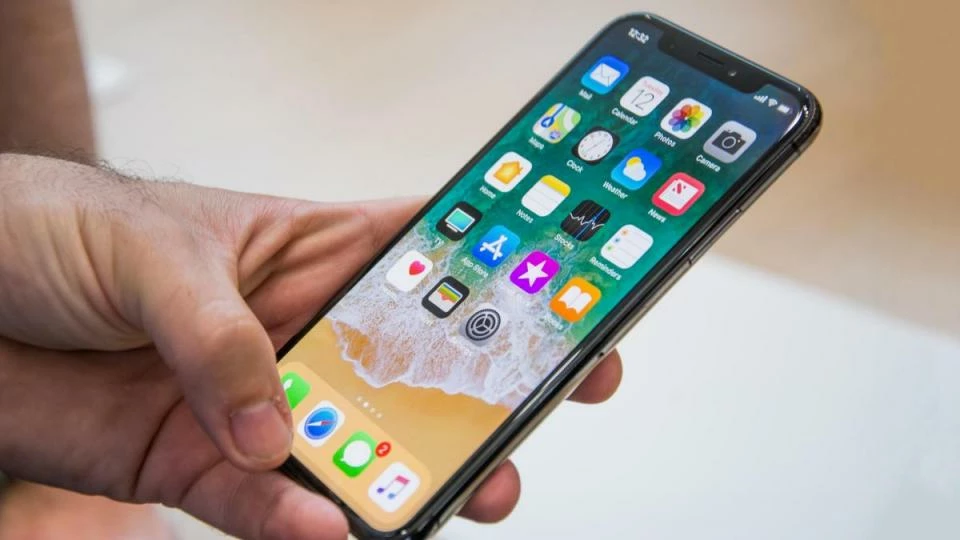
Partner Article
Predictions for the future of Enterprise apps in 2018
The world of Enterprise apps has been moving slowly throughout 2017, with many businesses only now discovering how beneficial the move to mobile truly is. We expect that enterprise apps will continue to become more common place but in what ways and to what extent? Well, by looking at trends in the industry currently, as well as the history of enterprise apps, we have a handful of predictions for the future of Enterprise apps in 2018.
1 year forward but still 5 years back
The consumer market is guaranteed to break new ground in 2018 but for the enterprise space this will not be the case. What we see most of the time with enterprise apps are that they are typically five years behind the consumer space. For example, the iPhone X will be a big focus in the consumer space but most app developers for businesses will be ensuring their apps run on iPhone 7 instead. The reason for this is because, in business, ubiquity is key, and they need to ensure that all employees have access to the app. They can’t force all staff to get an iPhone X or equivalent and they can’t spend money to give everyone an iPhone X so it is more cost effective to make an app for an older model of phone. The downside to this is that business can’t take advantage of any cool new features the consumer market can, like the Facial ID software.
Communication can save time, which is also money.
Businesses love to save money, this is a fact. With concerns over the economy and the uncertainty of a post-Brexit Britain many UK enterprises have begun to look for ways of improving efficiency. Therefore, apps that speed up production, improve workflow and allow easier communication will be the enterprise apps of 2018. As an example, many businesses only just got into using SMS for sending reminders and communicating with employees. In the new year, these businesses will begin to instead move over to new communication apps like ChatBox and WhatsApp that allow for group discussions and file transfers. In doing so, this will improve office communication and quickly solve staff enquiries.
Keeping it simple
A new evolution in the mobile space is Artificial Intelligence (AI). Advanced AI is currently in the middle of trialling across the UK and is expected to be implemented into the mobile space late next year however, this will mainly be for the consumer space. AI is not yet at a level where it is suitable for big businesses and it is unlikely to hit that point next year. Enterprises are pushing for AI as it is more cost effective, after all having one program do the job of 50 people massively saves on time. But, the only places AI is being currently used are in call centres where all they can do is act as a directory or switchboard. They can’t yet solve the kind of complex problems that everyday employees may face.
However, instead of a complex AI being used we will possibly see a rise in Voice User Interfaces (VUIs). Big companies like Microsoft with Cortana or Amazon with Alexa have already introduced simple VUIs to consumers and these will begin to crop up in enterprises next year, at least as an option. While it isn’t perfect yet, simple commands can be efficiently utilised to speed up information gathering or communication as speaking a message is a lot faster than writing one.
As one final, more general, prediction we believe that mobile apps will continue to increase in the enterprise world and at a much faster rate than before. It certainly won’t catch up to the consumer market but when next year is ending maybe we will be looking at 2019 and saying that enterprises are now only 4 years away from catching up to the rest of the mobile world. Let’s hope so.
This was posted in Bdaily's Members' News section








 £100,000 milestone drives forward STEM work
£100,000 milestone drives forward STEM work
 Restoring confidence for the economic road ahead
Restoring confidence for the economic road ahead
 Ready to scale? Buy-and-build offers opportunity
Ready to scale? Buy-and-build offers opportunity
 When will our regional economy grow?
When will our regional economy grow?
 Creating a thriving North East construction sector
Creating a thriving North East construction sector
 Why investors are still backing the North East
Why investors are still backing the North East
 Time to stop risking Britain’s family businesses
Time to stop risking Britain’s family businesses
 A year of growth, collaboration and impact
A year of growth, collaboration and impact
 2000 reasons for North East business positivity
2000 reasons for North East business positivity
 How to make your growth strategy deliver in 2026
How to make your growth strategy deliver in 2026
 Powering a new wave of regional screen indies
Powering a new wave of regional screen indies
 A new year and a new outlook for property scene
A new year and a new outlook for property scene